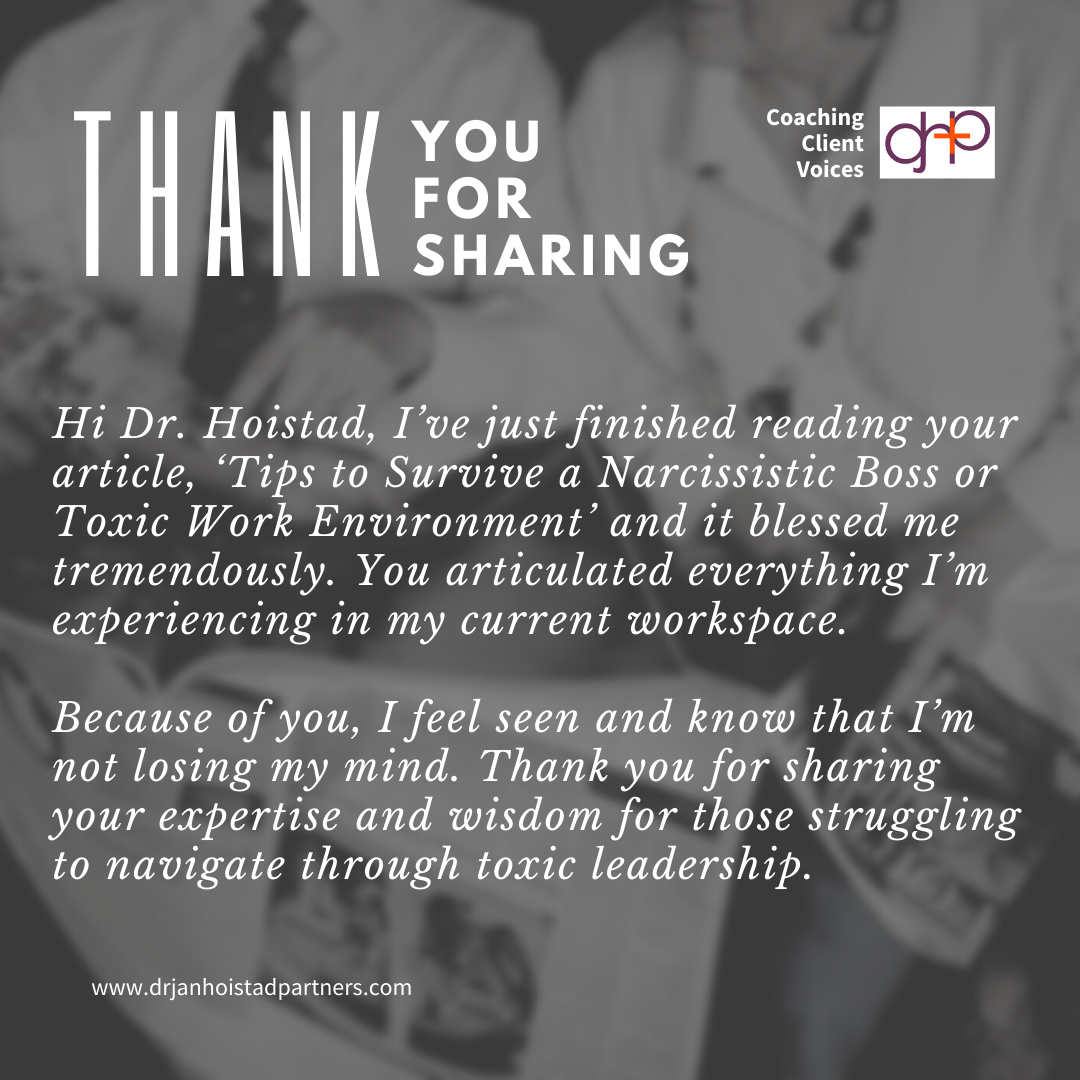Ideally, your workplace is where you are encouraged and empowered to make a difference. A job should be one of the ways in which you learn and grow as a person, and you feel you are making a contribution. If that is not true for you, and you are experiencing negative feelings, bullying, nasty competitiveness, or other bad behavior on a regular basis, what are your choices?
This article will break down the following areas for you…
- Assessing your situation
- Understanding the gap
- Reflecting before you act
- Avoid calling attention to yourself
- Stop being a lightning rod for negativity
- Seek out support and resources
- Deciding whether to stay or leave
As a business transformation consultant and career transition coach, when partnering with my client, together we assess 2 aspects of your work situation:
-
- First, we look internally to if there are any ways you might be contributing to your own negative experience by being what I call a lightning rod, possibly making your already negative situation worse.
- At the same time, we assess your surroundings and work circumstances, including the behavior of your boss and coworkers.
Even if ultimately leaving your current job becomes your choice, use your time remaining as an opportunity for learning and growth by applying the tips below.
Assess the Situation
Dave Chapman, author of a site dedicated to fighting workplace bullies offers these signs of a toxic work environment:
- Widespread anger and frustration
- Scapegoating–the blaming of someone else
- Dysfunctional relationships
- Dysfunctional meetings
- Blatant hypocrisy
- Very restrictive company procedure
- HR managers who are incompetent or powerless
- Lack of trust
While the reasons for a toxic work environment can be many, Kathy Caprino’s article on How to Tell if Your Boss is a Narcissist and 5 Ways to Avoid Being Fired by One in Forbes Magazine, highlights the initial signs of a toxic work environment:
-
- The physical workplace is a dump
- Only the company leaders have offices
- The company values are posted on a wall rather than lived
- The company promotes cutthroat competition
- There is a “sink or swim” mentality – either you will make it as an employee or you won’t
- Gossip, backbiting, and blaming are common behaviors, tolerated between the employees and the supervisors
Understand the Gap
The nature of the relationship between bosses/supervisors and their employees as well as the nature of the relationship between co-workers can also be a source of toxicity in the work environment. And, a toxic relationship may not always be obvious at first. While male leaders may create a toxic environment by openly intimating others, female leaders may be more covert and undermine others in private.
Other signs of a toxic environment include:
-
- Leaders who cannot be challenged; there is no respectful exchange of opinions between bosses and reports
- No one talks about company culture
- Leadership demonstrates bad habits pertaining to professionalism
- Segregation between employees of the same career level
- Actions are not consistent with talk
Do any of these look and feel familiar? Don’t worry. There are many strategies for coping and ultimately transitioning out of a bad situation and into a better job.
Reflect Before You Act
Step back to understand the root of your discomfort and potential toxicity; there may be many contributing factors; Carve out time to focus on you; start the inner dialogue with yourself about your situation and your options; stay calm, focused, and don’t panic. A clear head will help you look at all the options and make better decisions. Clean up your own behavior and remain professional, do a good job as long as you choose to remain at the company. You want to at the very least feel proud of your own behavior. Talk to others; seek wise people who support your growth and assist your transition to a better company and position if that’s what you decide to do; A good career coach can save you lots of time and heartache during such a transition.
In a toxic environment, one employee may be picked out for bullying and abuse. Diligent employees become stressed by the dysfunction and unrealistic expectations
Try Not to Call Attention To Yourself
Are you, more often than not, the topic for gossip and rumors? Do you feel like you are being overlooked, ignored, or pushed out? If so, you may be what I call a “Lightning Rod.” I am not saying any of this is your fault. What I’m trying to convey is if you know behaviors that are calling extra attention to you so you get bullied or picked on, assess if there are ways to eliminate them. Try not to behave like a victim, but try not to stand out. Get help if this is confusing. Here’s a bit more on the topic and there are other articles at the end of the post which might be useful.
As Much as You Can, Avoid Being a Lightning Rod
The Lightning Rod is someone who is high-performing, consistent with the way they talk and act, and they are a very strong communicator. They are, sad to say, often female and strive for feedback. Lightning Rods have a growth mindset. Carol Dweck, author of Mindset describes this as a person who has a general love for learning, a resilience used for great accomplishments, and they truly believe their basic abilities can be developed through dedication and hard work. Their brains and talent are just a starting point to become better.
The “Lightning Rod” Effect on Others
If you are a Lightning Rod, your attributes may cause negativity between you and your coworkers. High performance may be seen as an irritant to others and coworkers may mistake your consistent words and actions as “entitlement.” The feedback you seek may be seen as competition. Coworkers may be threatened by your ambition.
Remember, do a good job, but if possible, try not to stand out while you reassess – It’s not helping you to be drawing attention because through no fault of your own, it is negative.
Once you transition to a healthier environment your terrific qualities will not draw negativity; they will more appropriately be appreciated!
Coping Strategies for Lightning Rods
Pull back–Do a good job but tone it down! While you reassess. Continue to behave professionally. Do your job well so you can be proud. Fit in where you can; shift focus from negative attention to places where you can make a positive difference. Stay neutral; do not place any blame–It will help remove negative feelings and emotions as the focus of your actions, and help you get through the day-to-day.Get Professional Support
Find an outside coach or mentor to guide you through the process of surviving while on the job and transitioning out at the same time. a good mentor would be someone from a different company who can guide you to respond to situations in a positive way.
Leave the Company
If you choose to do this, be fully committed to knowing leaving is the best decision for you. Let go of feeling like a failure or like you are at fault. Once you get some distance it will become clear you made the right decision. You may also have some PTSD to work through with a professional coach or therapist. Reach out for support. You’ll heal more quickly with help.
The most important thing is to try things and focus on what you can learn from your situation as long as you choose to remain or have to remain for financial reasons. Do not be afraid to take some risks. Remember what you are striving for–a positive workplace where you can use your talents, make a difference and contribute to your own success and the success of the company.

ADDITIONAL HELPFUL READS & RESOURCES FOR YOU <
Resources to Help Reflect on Creating a New Career Path
- My website Blog contains many articles, tips and suggestions to explore a career change or transition. This page includes those specific to the career transition topic, but feel free to look around and you may find others that are of help.
- Also, if you scroll down my FREE Articles webpage you’ll find 2 free downloadable Goal Setting Guides that will be helpful in setting goals and planning your next life and career move.
COACHING AND SUPPORT TO TRANSITION TO A BETTER POSITION
I hope these articles and resources have been helpful to you. If you are highly triggered, I recommend you reach out to a good therapist for support and to learn ways to manage your symptoms. If you need a referral please go to my calendar here and sign up for a 15 minute time slot. In the space provided, indicate that you are looking for a therapy referral. I will see if I can be of help.
Then when you are ready to explore career transition coaching, you may reach out for a Complimentary Conversation to explore your needs and how we might work together. Contact Dr. Jan for a Complimentary call to discuss your needs here.
Latest posts by Dr. Jan Hoistad (see all)- Three Ways to Advance Your Career - October 7, 2024
- How to Take Your Business to the Next Level - October 3, 2024
- Coaching for Business Partners: 4 Times to Work with a Skilled Business Relationships Coach - September 12, 2024

